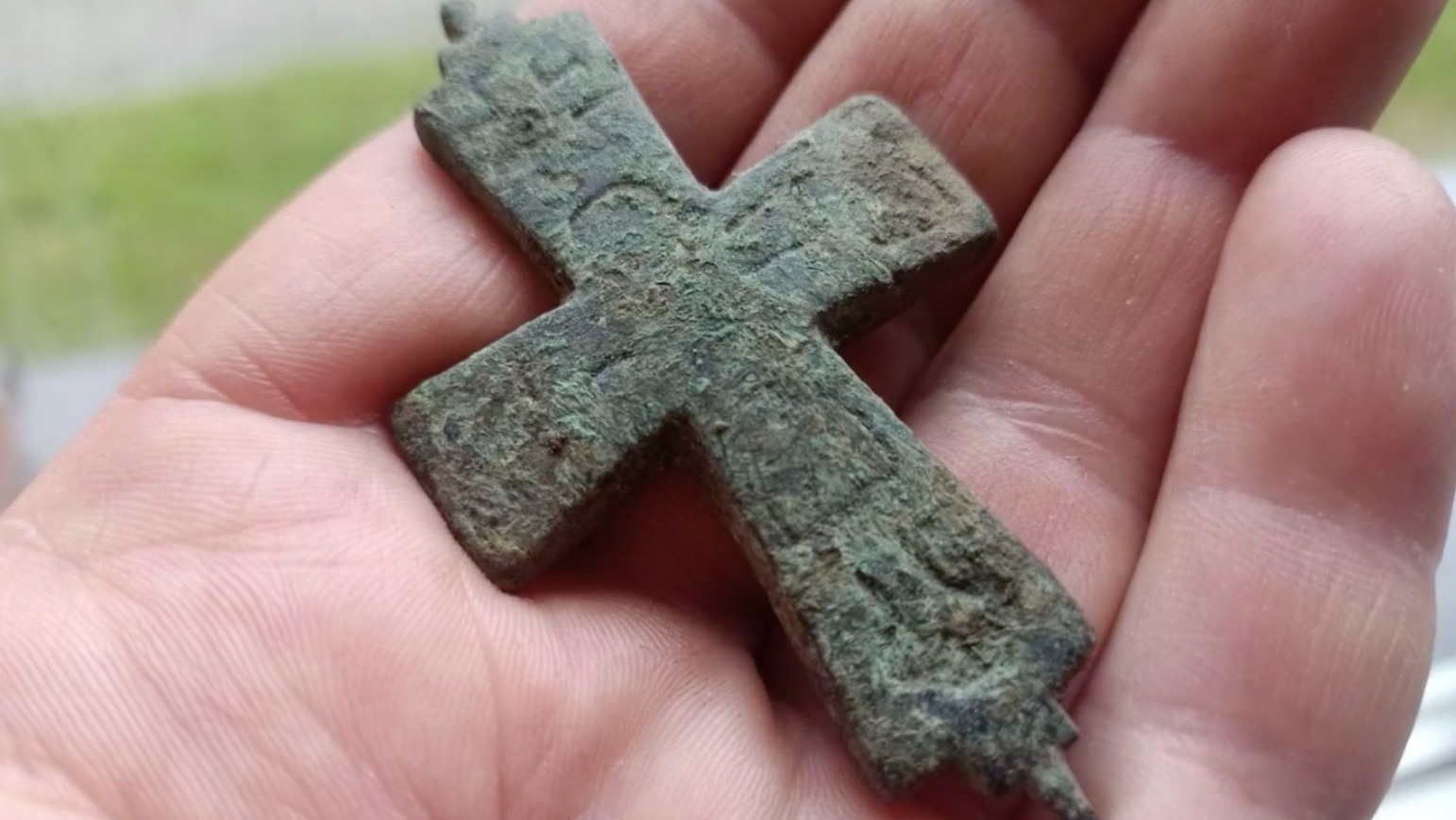Rare cross-shaped reliquary unearthed from medieval knight's home in Poland
Archaeologists in Poland have discovered the remnants of a medieval knight's residence, along with numerous artifacts.
Get the world’s most fascinating discoveries delivered straight to your inbox.
You are now subscribed
Your newsletter sign-up was successful
Want to add more newsletters?

Delivered Daily
Daily Newsletter
Sign up for the latest discoveries, groundbreaking research and fascinating breakthroughs that impact you and the wider world direct to your inbox.

Once a week
Life's Little Mysteries
Feed your curiosity with an exclusive mystery every week, solved with science and delivered direct to your inbox before it's seen anywhere else.

Once a week
How It Works
Sign up to our free science & technology newsletter for your weekly fix of fascinating articles, quick quizzes, amazing images, and more

Delivered daily
Space.com Newsletter
Breaking space news, the latest updates on rocket launches, skywatching events and more!

Once a month
Watch This Space
Sign up to our monthly entertainment newsletter to keep up with all our coverage of the latest sci-fi and space movies, tv shows, games and books.

Once a week
Night Sky This Week
Discover this week's must-see night sky events, moon phases, and stunning astrophotos. Sign up for our skywatching newsletter and explore the universe with us!
Join the club
Get full access to premium articles, exclusive features and a growing list of member rewards.
While surveying the remnants of a medieval knight's residence in Poland, archaeologists unearthed a plethora of artifacts, including a cross-shaped reliquary.
Archaeologists originally discovered the knight's manor in June on the outskirts of Widów, a village in southern Poland. An initial survey of the site revealed the remnants of a wooden tower that was destroyed but once sat on top of a hill sometime between the 13th and 15th centuries, according to Science in Poland, a news site that is a collaboration between reporters and the Polish government.
Further investigation of the archaeological site revealed the cross-shaped medallion, which is known as an enkolpion (also spelled encolpion and engolpion), which translates to "on breast" in ancient Greek. Made of copper alloy, the religious piece was an important symbol worn by Christians on their chests during medieval times and often contained quotations or illustrations from the Christian Bible, according to Science in Poland.
Related: Vast Goth cemetery brimming with grave goods and ornate silver jewelry discovered in Poland
While researchers aren't sure of the knight's identity, they do know that enkolpia were part of the vestments, or garments and articles worn by Eastern Orthodox and Eastern Catholic bishops, according to Science in Poland.
In addition to the cross, archaeologists found other military-related items, such as three iron stirrups, part of a horseshoe, crossbow arrows and remnants of cordage, or ropes. They also unearthed a number of artifacts, some made of clay and some made of iron, that were part of the former residence, including a stove, door fixtures, a padlock and key, nails, hooks and staples. Several silver coins and the remains of a belt were also found.
The former residence is part of a larger settlement that also contains the remains of a wooden church and a cemetery. Archaeologists have been exploring the site since the mid-19th century, but much of the outpost has been "destroyed by agricultural activity," according to Science in Poland.
Get the world’s most fascinating discoveries delivered straight to your inbox.
Jennifer Nalewicki is former Live Science staff writer and Salt Lake City-based journalist whose work has been featured in The New York Times, Smithsonian Magazine, Scientific American, Popular Mechanics and more. She covers several science topics from planet Earth to paleontology and archaeology to health and culture. Prior to freelancing, Jennifer held an Editor role at Time Inc. Jennifer has a bachelor's degree in Journalism from The University of Texas at Austin.
 Live Science Plus
Live Science Plus











